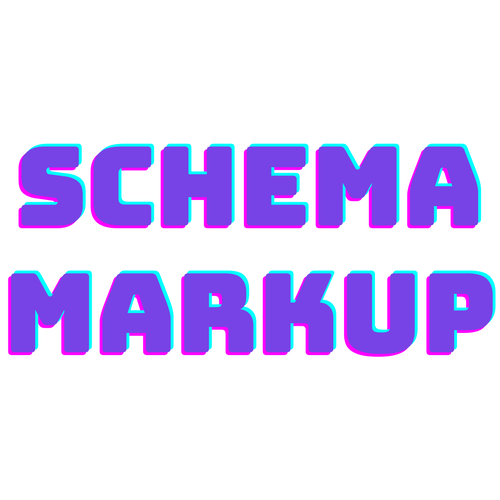
What Is Schema Markup?
Share
What Is Schema Markup?
Schema markup is a form of structured data that you add to your website's HTML to help search engines better understand your content. Think of it as a translator between your site and search engines, providing context that ensures your pages are categorized and displayed correctly.
For example, without schema, a search engine might recognize the term "apple" but won’t know if you’re referencing the fruit or the tech company. With schema markup, you can define what "apple" means, improving search engines’ ability to serve your content to the right audience.
Schema is a collaborative project between major search engines like Google, Bing, Yahoo, and Yandex, and it is standardized at Schema.org.
How Does Schema Markup Improve Your Site?
Schema markup can transform how your site appears in search results and provide several key benefits:
1. Enhanced Visibility with Rich Snippets
When schema markup is implemented, it can generate rich snippets—enhanced search result features that provide more information than the standard title, URL, and meta description. For example:
- Product listings can display star ratings, prices, and availability.
- Event pages can show dates, times, and locations.
- Recipes can include cooking time, ingredients, and ratings.
These rich snippets stand out visually, making users more likely to click your result.
2. Improved Search Rankings
While schema markup isn’t a direct ranking factor, it enhances the user experience by providing quick access to relevant information. Higher click-through rates (CTR) from rich snippets can indirectly boost your rankings.
3. Better Understanding of Content
Schema markup clarifies the purpose of your content to search engines, improving its chances of being indexed accurately and appearing in the right search queries.
4. Voice Search Optimization
Schema helps optimize your content for voice search by providing concise, structured answers to common questions.
Types of Schema Markup
Schema can be used for a wide range of content types. Here are some common examples:
- Local Business: Displays your business name, address, phone number, and reviews in search results.
- Product: Highlights product details such as price, availability, and user ratings.
- Event: Provides event details like date, time, and location.
- FAQ: Adds frequently asked questions and answers directly to search results.
- Recipe: Enhances recipe content with cooking time, ingredients, and nutrition details.
- Review: Displays ratings and reviews for products, services, or businesses.
How Can You Implement Schema Markup?
Here’s a step-by-step guide to adding schema markup to your website:
1. Determine the Type of Schema You Need
Visit Schema.org to explore the different schema types and find the one that fits your content.
2. Generate Schema Markup
You don’t need to code from scratch. Use tools like:
- Google’s Structured Data Markup Helper
-
Merkle’s Schema Markup Generator
These tools create schema markup code for you based on the information you input.
3. Add Schema Markup to Your Website
Insert the generated JSON-LD (JavaScript Object Notation for Linked Data) code into the appropriate sections of your HTML. Most CMS platforms like WordPress have plugins (e.g., Yoast SEO or Rank Math) that simplify this process.
4. Validate Your Markup
Use Google’s Rich Results Test or Schema Markup Validator to ensure your code is error-free and eligible for enhanced search results.
5. Monitor Performance
Once implemented, track how your schema markup impacts your CTR and organic traffic through tools like Google Analytics and Google Search Console.
Why Your Website Needs Schema Markup Today
Adding schema markup to your website is one of the most effective ways to improve your SEO, drive traffic, and create a better user experience. Whether you're a local business looking to highlight reviews, an e-commerce site showcasing products, or a content creator sharing recipes, schema helps your content shine in search results.
At StraightSense Marketing, we specialize in implementing structured data strategies that enhance your website’s visibility and performance. Ready to elevate your SEO game with schema markup? Contact us today and let’s get started!
